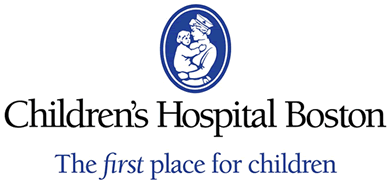Effectiveness of Cognitive Behavioral Therapy in Reducing Depressive Symptoms in Physically Ill Youth
| Status: | Completed |
|---|---|
| Conditions: | Colitis, Depression, Gastrointestinal |
| Therapuetic Areas: | Gastroenterology, Psychiatry / Psychology |
| Healthy: | No |
| Age Range: | Any |
| Updated: | 11/18/2012 |
| Start Date: | January 2008 |
| End Date: | August 2011 |
| Contact: | Eva M. Szigethy, MD, PhD |
| Email: | szigethye@upmc.edu |
| Phone: | 412-692-8147 |
Reducing Depressive Symptoms in Physically Ill Youth
This study will compare the effectiveness of cognitive behavioral therapy with supportive
nondirective therapy in reducing emotional distress and improving functioning in youth with
inflammatory bowel disease and depression.
Depression is a highly comorbid disorder: people with chronic physical illnesses are more
than twice as likely as healthy people to develop symptoms of depression. Specifically,
children and adolescents with inflammatory bowel disease (IBD) have higher rates of
depressive symptoms and more trouble with daily functioning than those without physical
illness. Furthermore, the medications used to treat IBD, such as steroids, may cause
depression. Depression can add to the distress already caused by IBD and can inhibit
affected individuals from seeking proper health care for their condition, making treatment
of any depressive symptoms in youth with IBD particularly important. Cognitive behavioral
therapy (CBT), a form of psychotherapy that teaches more effective ways to think and act in
order to cope with illness, may improve both emotional and physical outcomes in youth with
IBD. This study will compare the effectiveness of CBT with supportive nondirective therapy
(SNDT) in reducing emotional distress and improving functioning in youth with IBD and
depression.
Study participation through follow-up will last 15 months. All participants will undergo
initial assessments that will include an interview and questionnaires about their
psychological and physical functioning and a blood test to assess current IBD severity.
Eligible participants will then be assigned randomly to receive 12 weeks of CBT designed for
youth with IBD or SNDT. Both groups will attend 12 weekly 45- to 60-minute sessions of their
assigned treatments. Participants in the CBT group will learn new skills to cope better with
emotions, physical illness, and pain. Specific topics will include problem solving skills,
education about depression, goal setting, mood monitoring, increasing enjoyable activities,
relaxation methods, and ways to change negative thinking into positive thinking.
Participants in the SNDT group will receive social support and quality information about the
warning signs and risk factors of depression. Both groups will have three parent sessions
provided at the beginning, middle, and end of treatment to improve family understanding and
communication about the physical illness and about risks for developing depression. Both
groups of youth will also have booster sessions every 6 months during follow-up. Outcomes of
emotional and health-related factors will be assessed at Months 1, 2, 3, 9, 15 and 18.
Inclusion Criteria:
- Children's Depression Inventory (CDI) or Children's Depression Inventory-Parent
Version (CDI-P) greater than or equal to 10
- Meets diagnostic criteria for Crohn's disease or ulcerative colitis
- Absence of mental retardation by history
- Has at least one appointment at the gastrointestinal clinic (includes patients
followed in these clinics as well as those seeking consultation)
Exclusion Criteria:
- History or current episode of bipolar disorder, eating disorder, or psychotic
disorder by DSM-IV criteria
- Taking antidepressant medications within 1 month of study entry
- Suicidality with severity of intent requiring immediate psychiatric hospitalization
or significant act involving intentional self-harm (e.g., cutting or overdose,
resulting in medical attention)
- Unacceptable risk of harm to others, as indicated by homicidal or other violent
ideation, intent, or action OR use of illegal weapons
- Pregnant
- Substance abuse other than nicotine dependence within 1 month of study entry
- Current treatment with CBT or failure of previous CBT trial of at least 12 treatment
sessions over a period of less than 1 year conducted by an appropriately trained
mental health provider using a manual
- If currently receiving other psychotherapy modalities, willing to suspend treatment
for 12-week acute treatment phase of study
We found this trial at
2
sites
4401 Penn Avenue
Pittsburgh, Pennsylvania 15224
Pittsburgh, Pennsylvania 15224
412-692-5325

Children's Hospital of Pittsburgh of UPMC UPMC is one of the leading nonprofit health systems...
Click here to add this to my saved trials
Children's Hospital - Boston Boston Children's Hospital is a 395-bed comprehensive center for pediatric health...
Click here to add this to my saved trials
